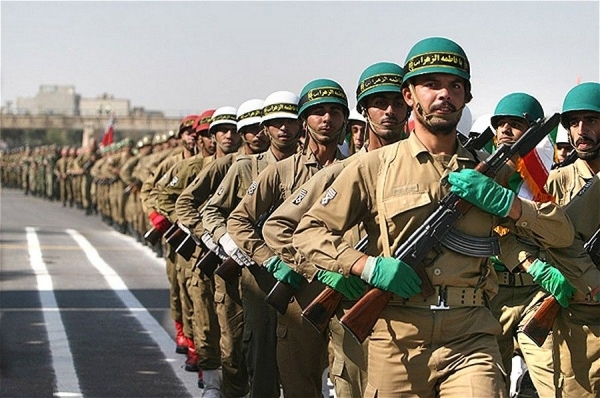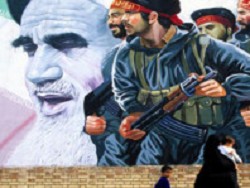
The main focus in the middle East focused on the fight the legitimate government of Syria against Islamic state terrorists and sympathizers of armed groups. Thanks to skillful actions of the Russian Federation, ATT was able to make a difference, even recognized by the world community.
And here is another potential conflict remains in the shadows of events in Syria. Meanwhile, the potential clashes of the Islamic Republic of Iran (IRI) and the Kingdom of Saudi Arabia (KSA) is very significant.
After the sanctions are lifted, Iran becomes a direct competitor of Saudi Arabia in middle East oil market. The U.S. position, not to defend sanctions against Iran, put Riyadh in a difficult position. Like complete freedom of action, but at the same time and full responsibility for any of their movements.
Demonstrate existing tensions took place at the beginning of the year, when the Saudis beheaded a Shiite preacher Nimr al-Nimr. The ensuing performances in Iran and the attack on the Embassy of the KSA were the reason for the unilateral severance of diplomatic relations. Tehran has maintained diplomatic relations, although the baton Riyadh has adopted a number of nearby States.
Despite all the contradictions of the two most powerful States in the Middle East, during a full-scale military confrontation neither side is disadvantageous. Thus, Iran and Saudi Arabia are immersed in some kind of local cold war within the Sunni-Shiite conflict. It wins the one who will achieve qualitative superiority over the enemy.
The Saudis traditionally follow the path of sulistiani problems by income from the oil industry. Build your own production, to educate staff, conduct research and development is not all for the CSA. On the other hand, low oil prices do not allow throwing dollars as carefree as before.
But Iran is another matter. Here is something to see.
What have Iran
Iran has a large army and a solid supply of various military equipment. In actual fact, there are just two of the army: official Iran’s armed forces reporting directly to senior management of the country’s Islamic revolutionary guards Corps. In its abilities, it will give odds to many States, including, apparently, the army of Ukraine.
The last few decades can not be called quiet in Iran. They did not contribute to a calm, systematic development of the Iranian armed forces. However, Tehran has taught primarily to rely on their own strength.
Naval success
Your fleet of Iran may well be proud. Most of what is now in the ranks — Iranian development, collected on the Iranian shipyard with in-house expertise and parts from own production.
Of course, the Iranian Navy has, say, missile boats of German and Turkish origin, and quite old. The Turkish boats were built in the mid-nineties, and exchanged the German for the third dozen. But to replace them at the beginning of the two thousandth Iran began to build its own missile boats.
Let these boats made on the basis of the draft French RCA type Combattante II, they are armed with missiles “Nur” which, in fact, are processed a copy of the Chinese YJ-82, but all of it made in Iran, and no bans on the supply of arms will not be able to deprive Iran of this weapon.
Iran produces its frigates, corvettes and small submarines of various types. However, our “Halibut” the Iranians impossible to substitute, use purchase.
Iranian missiles
When the United States claim that the ABM system in Europe is needed to counter the Iranian missile threat — they make Iran a compliment. Although the Iranians held the ninth of March possibilitiesa test missiles, the danger of missile strike on Europe is greatly exaggerated.
However, unlike KSA, Iran its missile industry has developed, develops and will continue to develop in the foreseeable future. Here and the above-mentioned anti-ship missiles “Nur” with an active homing head, and a heavier “Qadir” with a range of 300 km.
Cruise missiles “Meskat” though developed based on Soviet Kh-55, but they are manufactured in Iran at its elemental base. Two thousand kilometers distance, certainly not enough to scare Europe, but to cover the ports of Saudi Arabia on the red sea coast, would be enough.
Iran has even its own space program. In the late nineties on North Korean technology the Iranians have created a ballistic missile “Shahab”, which made the rocket “Safir”. With its help, 4 February 2009, Iran put into Earth orbit its first satellite. Later, this same rocket was delivered to the space animals. The first manned launch is planned for 2021.
The air force, air defence and electronic warfare
This area of high-tech weapons remains a tough nut for Iranian designers. Therefore, don’t have experience by now, Tehran plans to buy everything in Russia.
So the Iranians look narrowly at the Russian MiG-30CM. It was expected that a contract could be signed as early as February, when Iran has arrived the Minister of defence of Russia Sergey Shoigu, but in the end, the document went on completion. Although these fighters no doubt, Iran. Powerful, super-maneuverable su-30CM is able to approve Iran air superiority over the Middle East.
Especially in combination with Russian air defense system. On the supply of s-300 was agreed during this visit. I will remind, in April 2015 Vladimir Putin has lifted a ban on the supply of s-300 to Iran, and now the systems should be delivered within 2016.
There is no doubt in the interest of Iranian military our EW systems. To create this technique independently of the designers of Iran. But they are ready to try yourself in the tank.
Tanks for the Islamic Republic
Dancing around the Iranian tank development can be a topic for another article. At the end of the eighties the supply of tanks T-72 was engaged in the Soviet Union, however, the Iranians rightly believed that it would be correct to produce them on its territory. Moreover, it is desirable, from their details.
Then the Iranians with the help of Soviet engineers managed to achieve the Assembly of the T-72 in Iran partly because of parts of its own production and partly from the Soviet. So the Iranians could not manage to organize the production of engines. But the case for future machines they have learned to produce more or less tolerable.
Nowadays, the approach has not changed, changed only the machine. Now Iran needs tanks T-90, which would like to produce independently. More precisely, Tehran initially wanted to buy Russian tanks. Later defense Minister of Iran made a statement that Iran has developed a tank “Karar” on their own, so to discuss the purchase does not make sense.
It was stated that the Iranian “Karar” will not be inferior to the Russian T-90. However, after some time it became clear that the Iranian machine is made on the basis of Russian, and indeed Iran is not against to buy our tanks, but only under condition of transfer of technical documentation.
Given the experience with the production of T-72, it can be assumed that Iran will be able to establish themselves in the Assembly of our T-90 with the use of components manufactured in-house. Although the T-90 will be more complicated T-72 and such production may be substantially stronger impact on the final characteristics of the machine.
In conclusion
But even if the result of this joint Assembly will be worse than purchasing a ready tanks, Iran still can be understood. Buy ready examples of high-tech products is not the best idea when it comes to the purchase of military equipment. Especially for the state, which aims to further self-development.
Well-known similar approaches to military equipment of China and India. Here, however, Iran is a middle ground. Chinese total is up and the Indian CKD Assembly, Iran does not hesitate to purchase the necessary military equipment, but gradually replaces its domestic production of its own when analogue is already debugged.
Thus, it is clear that Iran prefers to play long, with no hope of immediate success. This he compares favorably with Saudi Arabia. At the moment, bathing in oil revenues, the Saudis do not have a qualitative military superiority over the recently released from the sanctions Iran. And what will happen tomorrow, when Iran finally get their share from the sale of oil and will take it seriously.








